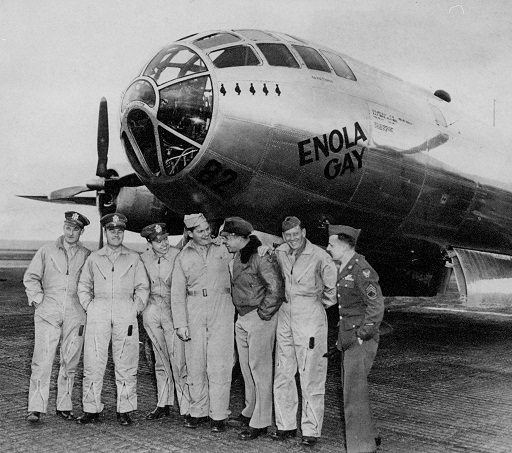4 Can unjust combatants fight justly?
If we can endorse the Just War Tradition’s distinction between JaB and JiB , then the second example in Activity 3 can be filled in. The point of this example is that it is possible to fight justly in an unjust cause. This is of great importance for serving soldiers, because it means their actions can be just even if their cause is not. But the distinction does not work if it is the case that it is not possible to fight justly in an unjust cause. And this is what McMahan suggests is the case (although with one qualification, which we will look at below).
The second JiB condition is that those who fight observe the principle of discrimination. Here is what McMahan says in Killing in War :
Those who fight solely to defend themselves and other innocent people from a wrongful threat of attack, and who threaten no one but the wrongful aggressors, do not make themselves morally liable to defensive attack. By engaging in morally justified self- and other-defense, they do nothing to forfeit their right not to be attacked or killed. This means that even though just combatants are ‘doing harm’ and ‘pose a danger to other people’ when they oppose the military action of unjust combatants, they do not thereby become legitimate targets of attack but retain their innocence in the generic sense.
But if this is right, then just combatants are not liable to attack. Here is McMahan again:
It is hard to see how just combatants could become legitimate targets simply by offering violent resistance to unjust attacks by unjust combatants. …to attack just combatants is to attack people who are innocent in the generic sense: people who have not forfeited their right against attack, and thus are not liable to attack. They are therefore illegitimate targets. To attack them is indiscriminate.
Indiscriminate killing is, of course, in breach of the JiB conditions. So, if you are fighting in an unjust cause, then you cannot target civilians, because they are civilians, and you cannot target just combatants, because they are not liable to be killed. You cannot target anyone. You cannot fight justly. The second example in Activity 3 has become a big problem.
Activity 6
Look back at Activity 3 . Consider how McMahan’s account might alter things, and see if you can decide how McMahan would deal with each of the examples.
Discussion
| Actions of combatants | Conform to JaB conditions | Fail to conform to JaB conditions |
|---|---|---|
| Conform to JiB conditions |
Combatants fight in a just cause and by just means Not liable to attack. Just combatants have not lost the right not to be killed, and killing them is impermissible |
Void: Unjust combatants cannot meet the condition of discrimination between those liable and those not liable to attack: they have no legitimate targets (and should stop fighting). If you fight in breach of the JaB conditions, you cannot meet the JiB conditions (Exceptionally, perhaps, unjust combatants may have legitimate targets. They may attack just combatants who fight unjustly: such as the crew of the Enola Gay ) |
| Fail to conform to JiB conditions |
Combatants fight in a just cause, but by unjust means Example: the bombing of Dresden, which failed to meet the JiB condition of discrimination. Just combatants who fight unjustly are liable to being killed in war – for example, the crew of the Enola Gay |
Combatants fight in an unjust cause and by unjust means Liable to attack; they should stop fighting. They may not permissibly defend themselves from defensive killing |
McMahan’s account differs radically from the account given by Walzer, and the standard account of the Just War Tradition which forms the background to most everyday thinking about killing in war. In general, on McMahan’s account, unjust combatants cannot fight justly. They cannot obey the JiB conditions. For sure, they can try to discriminate between soldiers and civilians. But the moral point of the discrimination between soldiers and civilians is to discriminate between those liable to be killed and those who are not liable to be killed. The moral property that makes a difference is the property of being liable, not the property of wearing a uniform. So, on McMahan’s account the second example is void – it cannot be filled.
What about the third example? That is, what about just combatants who fight by unjust means? Here the situation gets more complicated.
On the argument so far, unjust combatants are not permitted to attack just combatants. But what if the just combatants are violating the JiB principles? McMahan thinks it would have been morally justified for a Japanese fighter pilot to shoot down the Enola Gay ‘despite the fact that he was an unjust combatant while the crew of the Enola Gay were just combatants’ (2009, p. 16)

On this account, acts of war by unjust combatants can be morally justified – when they are directed at just combatants who are breaking the rules of war – but it is very hard and very rare for this to be the case.
Here is how McMahan puts it in Killing in War :
Unjust combatants can seldom satisfy the jus in bello requirement of discrimination, since just combatants seldom make themselves liable to attack and thus are in general illegitimate targets. If just combatants were always to fight according to the moral constraints that govern their conduct in war, they would never be liable to attack and thus unjust combatants would never be able to satisfy the requirements of discrimination.
